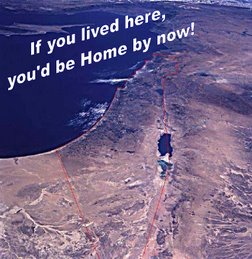Everything I'm about to say is highly theoretical, but I think is something that should be thought about.
A look at some events that happened during the Smittah year for the past 42 years:
5726/September 1965-September 1966: In 1966 security restrictions placed on Arab citizens of Israel were lifted and efforts began to integrate them into the countries life.
Until 1966, Israel's principle arms supplier was France, however in 1966, following the withdrawal from Algeria, De Gaulle announced France would cease supplying Israel with arms (and refused to refund money paid for 50 warplanes)
5733/September 1972-September 1973: 11 members of the Israeli team to the Munich Olympics were kidnapped by Palestinian terrorists.
And let's not forget that 10 days after the end of the Shmittah year, Syria and Egypt started the Yom Kippur War, which was being planned during Smittah
5740/September 1979-September 1980: For the most part was quiet except for the residents of Yamit and other Sinai Jewish residents as the Sinai Peninsula was given to Egypt in April 1979
5747/October 1986-September 1987: Palestinian Arabs start first Intifada (terror war) on Israel
5754/September 1993-September 1994: Rabin and Arafat shake hands on the White House lawn, three days before Rosh Hashanah 5754.
The DOP established May 1999 as the date by which a permanent status agreement for the West Bank and Gaza Strip would take effect. Israel and the PLO subsequently signed the Gaza-Jerico Agreement on May 4, 1994, and the Agreement on Preparatory Transfer of Powers and Responsibilities on August 29, 1994, which began the process of transferring authority from Israel to the Arabs.
On July 25, 1994 Jordan and Israel signed the Washington Declaration which formally ended the state of war that had existed between them since 1948.
5761/September 2000-September 2001: In the Fall of 2000, talks were held at Camp David to reach a final agreement on the Israel/Palestine conflict. Although Israel offered to meet the Palestinian requests for territory and political concessions, including the Old City of Jerusalem, Gaza and the West Bank, Arafat chose to walk out of the talks.
September 28, 2000-two days before Rosh Hashanah-Arabs launch Second Intifada
In October 2000, Palestinians destroyed Yosef's Tomb, a Jewish shrine in Shechem. They also stoned worshipers at the Western Wall (Kotel) and attacked another Jewish holy site, Rachel's Tomb (Kever Rochael).
With the Peace Process increasingly in disarray, Israeli Prime Minister Ehud Barak called a special election for Prime Minister. Barak was hoping that a victory for him would give him renewed authority in negotiations with the Palestinians. But Barak's hopes were not to be, and in February 2001, opposition leader Ariel Sharon was elected PM in a special elections for Prime Minister in 2001. After this election the system of directly electing the Premier was abandoned.
Last time an Israeli Prime Minister was elected, a party was elected in 2006, but not the Prime Minister.
4 years later the elected of that election, Ariel Sharon, threw 10,000 Jews out of their homes in Gush Katif.
5768/September 2007-??: November 26, 2007, a planned "Peace" conference is set to take place in Annapolis, MD, with the possibility of once again offering Jerusalem and the West Bank to the Arabs.
Only time will determine the outcome.
Subscribe to:
Post Comments (Atom)




No comments:
Post a Comment